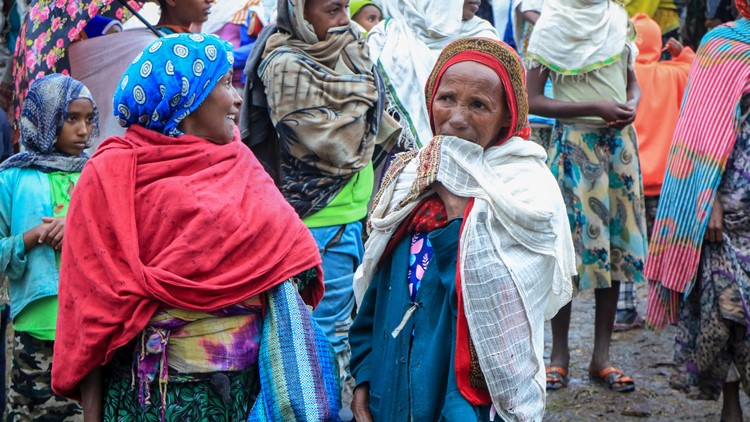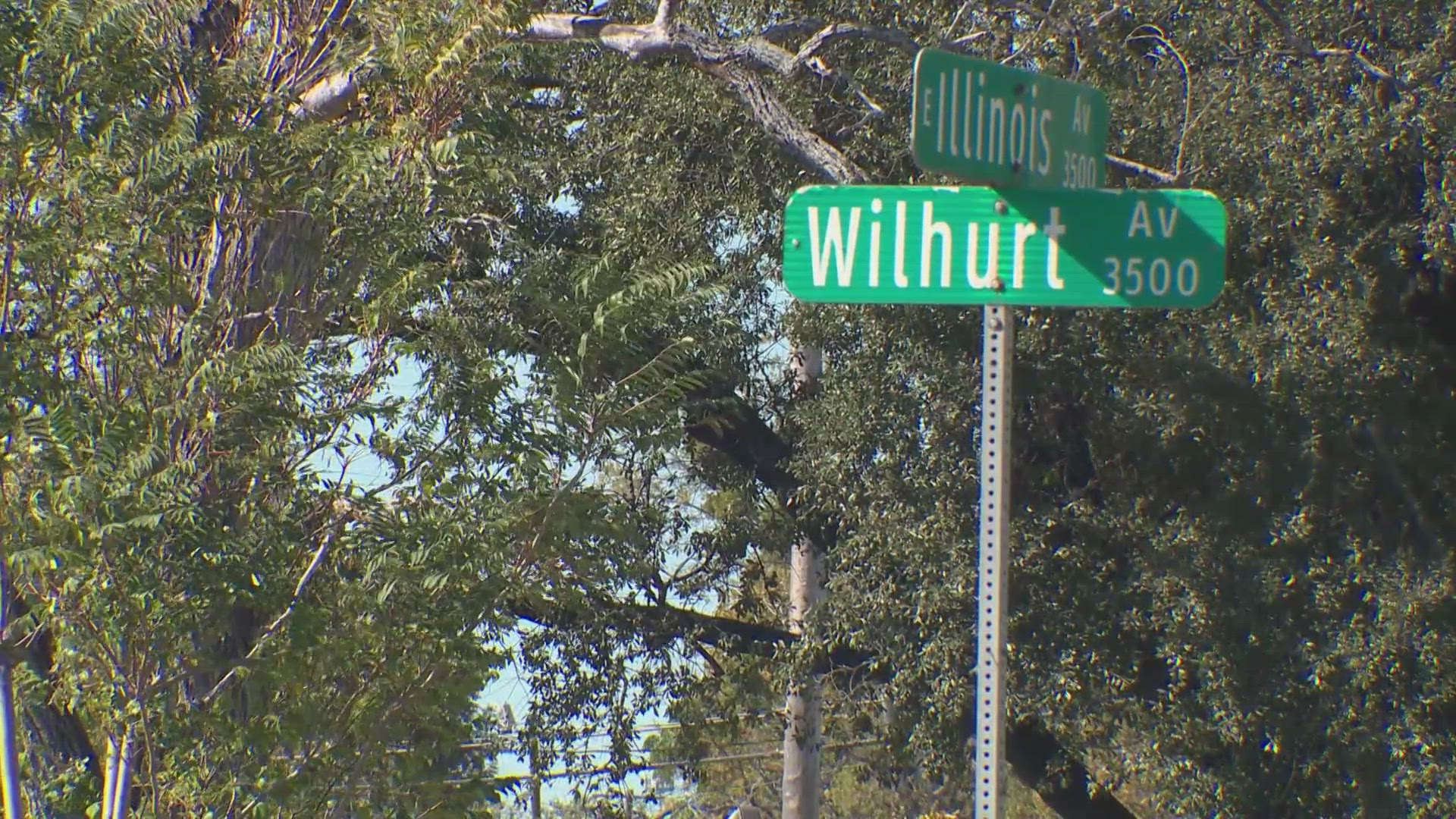DALLAS — Col. Yonas Leban lives in Dallas and has called the United States home for more than 30 years. But his heart, and his mind, are still in Ethiopia, especially as his home country is being torn apart by a civil war.
"I am physically here in America," Leban said, "but mentally I am in Ethiopia because of my family who are suffering."
Leban, a veteran of the Ethiopian armed forces before he came to America, is not alone. He is one of an estimated 45,000 residents in North Texas who have ties to Ethiopia, either as their home country or the home of their immediate family members.
"It is beyond my comprehension to imagine what they are going through," Leban said. "My family is dealing with life-and-death situations on a daily basis."
The conflict in Ethiopia is between the federal government and the Tigray Peoples Liberation Front, known as the TPLF. Tigray is a northern region of Ethiopia, along the border of Eritrea.
The TPLF for nearly 30 years had ruled Ethiopia, until a 2018 election, when Prime Minister Abiy Ahmed was voted into power. The two sides - the TPLF and the Ethiopian government forces - have clashed since November 2020, and both have blamed each other for human rights violations during the conflict.
The United Nations announced this month that it found "widespread violations of abuses of international human rights law, and violations of international humanitarian law and international refugee law, by all parties to the conflict" in Ethiopia.
As a result, the UN's Human Rights Council voted to begin an investigation on the alleged abuses, which include rape, torture and gender-based violence.
In Tigray, where the conflict began, UN officials estimated that nine-in-10 people need humanitarian aid, and that 400,000 people were living in famine-like conditions.

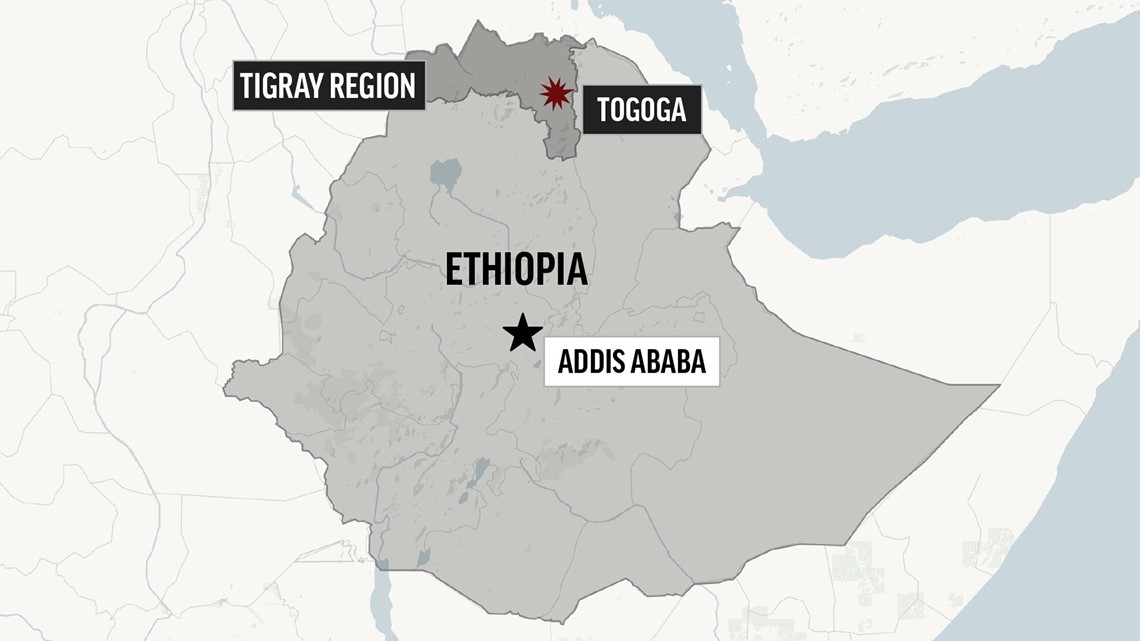
Leban and other supporters of the Ethiopian government call the TPLF a terrorist organization and say that the vast majority of Ethiopians support the elected government.
Still, there are also people in North Texas who oppose the Ethiopian government, and a group of dozens protested in downtown Dallas earlier this month, accusing Ahmed, the Ethiopian prime minister, of genocide against Tigrayans.
While both sides are angry at each other, they share similar concerns for their family members in Ethiopia.
"We're not proponents of violence," said Michael Gebremeskel, of Garland, who marched in Dallas in support of Tigray. "We want our families to live in peace. We want our families to be safe and sound."

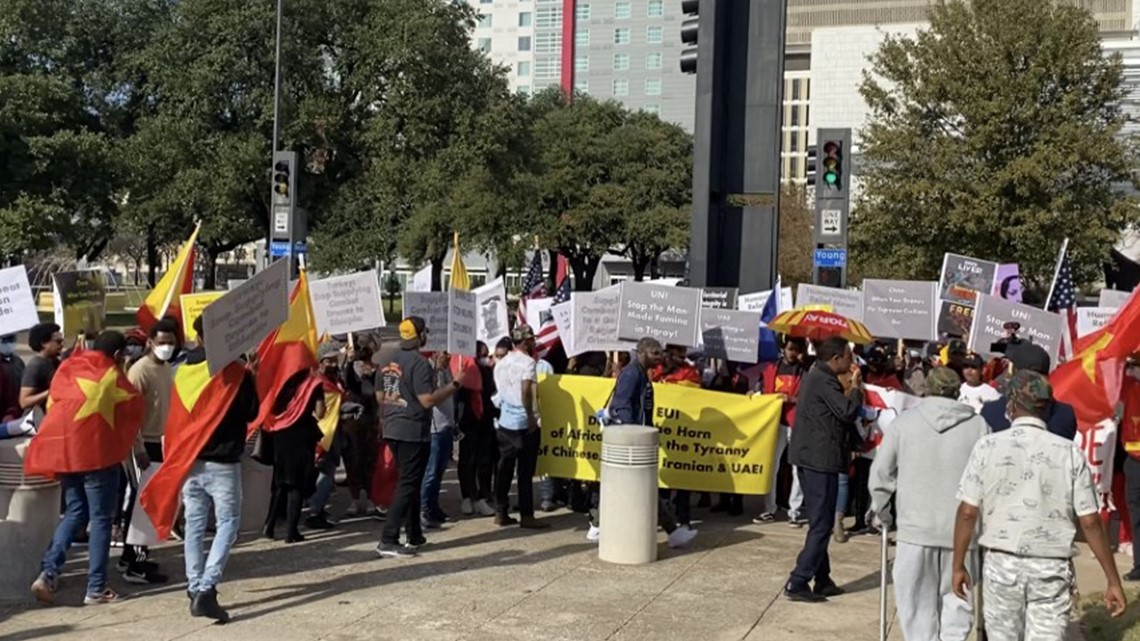
Leban is a longtime U.S. resident, but he has sisters and brothers and nieces and nephews, and countless other relatives and friends who live in Ethiopia. Among the issues they are dealing with are a lack of shelter, having been forced from their homes that were destroyed by the war, Leban said.
Leban's family is also struggling to find food and dealing with health problems that can't be treated, as hospitals and medical clinics have also been destroyed or damaged.

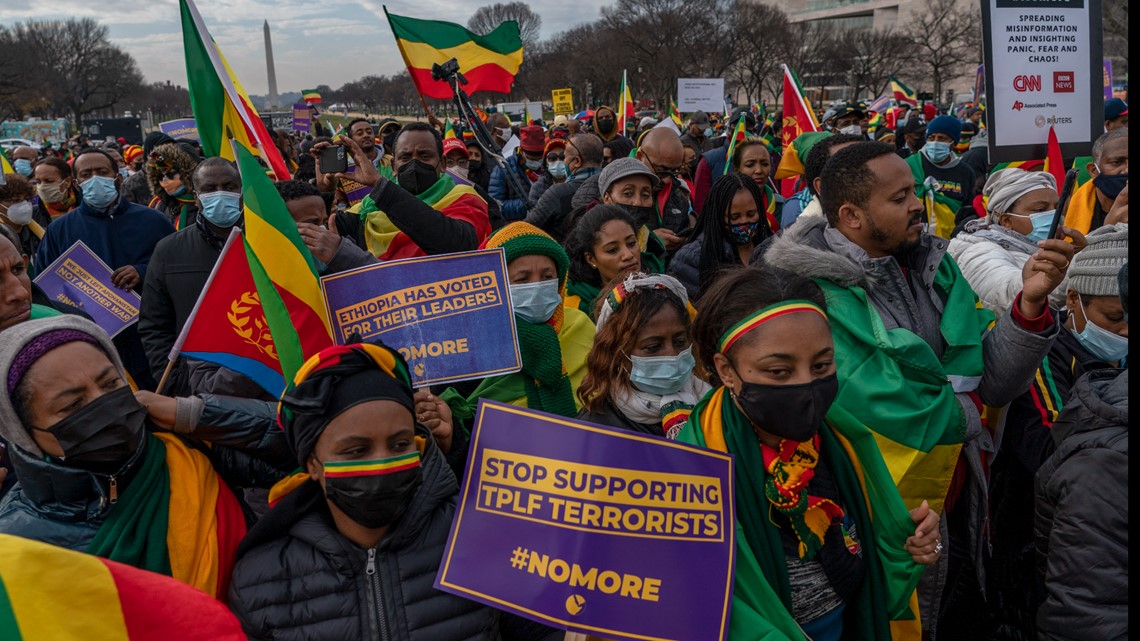
"It's a very volatile situation," explained Bill Holston, a Dallas lawyer who helps Ethiopians seek asylum in Texas. "They're right on the cusp of real military ruin, but also economic ruin and food insecurity."
Holston, the executive director of the Dallas-based Human Rights Initiative, has worked with Ethiopians since the early 1990s. In most cases, asylum seekers have come to the United States to flee torture.
"It's had this political instability for decades," Holston said. "And lots of really, really good people have fled the various regimes now."
Holston said he believes the most effective way for the U.S. to help Ethiopia is to have an effective asylum system. But the system, Holston said, is backlogged and has some refugees waiting years for their case to be heard.
"We don't have the ability to solve these crises [in Ethiopia]," Holston said. "Our best response is to have a robust asylum system. There's all these easy answers like sanctions and tariffs, but those don't solve problems."
The anxiety among Ethiopians in North Texas is evident.
Leban was the only member of one local Ethiopian community who was willing to speak on the record about what his family is going through back home. While thousands of Ethiopian-Americans have protested the war in Dallas and other cities, they fear backlash, both in Ethiopia and the U.S., by identifying themselves in a news story.
Leban, too, understands the risk. He also is unsure what else it will take to get attention on the desperation in his home country.
"My families do not have schools to go to, no hospitals for their health, no employment opportunities because businesses are destroyed," Leban said. "How can one live?"


